| New Delhi |
Published: June 29, 2020 2:24:20 pm
For two decades, the deadly Bombay plague ravaged across the Indian subcontinent like a hungry beast, claiming about 10 million lives. (Source: Wikimedia Commons/ edited by Gargi Singh)
Many would say the Covid-19 outbreak may change forever the world as we have known it till now. Power structures may be shifted, economic systems remodeled, along with significant changes in the way we touch, behave, and breathe. With the number of cases continuing to surge and the prospect of a vaccine still distant, we are yet to see the impact that the virus will play out in times ahead. Lessons from the past though can provide some insight into what lies ahead.
In this six-part series, Indianexpress.com will chart out how major epidemics of the past have altered the course of history in the world. Each of these began as a biological phenomenon, but soon turned into economic, social, or political ones. Loss of lives and livelihoods had followed, distress and despair experienced, and yet despite the scale of devastation, the human race made peace with its surroundings and came out victorious. The message was, and still remains the same- there is hope!
***
September 23, 1896, could well be a landmark moment in the medical history of India. It was on this day that the first case of the Bombay plague was identified in Mandvi, Bombay (now Mumbai), by Dr. Acacio Gabriel Viegas, an Indian practitioner of Western medicine. Within a week, plague cases were reported from neighbouring areas, and by the end of the year, it had spread to all parts of the municipal corporation.
In the next few years, the plague would spread from cities like Bombay, Pune, Karachi and Calcutta to the hinterlands. For two decades, the deadly Bombay plague ravaged across the Indian subcontinent like a hungry beast, claiming about 10 million lives. “The plague onslaughts which besieged India were part of the modern pandemic, the third great, worldwide visitation of plague in recorded history,” writes historian Ira Klein in his research paper ‘Plague, policy and popular unrest in British India’. He goes on to write that during the plague of the late 19th century “India suffered terribly, far more than any other country”.
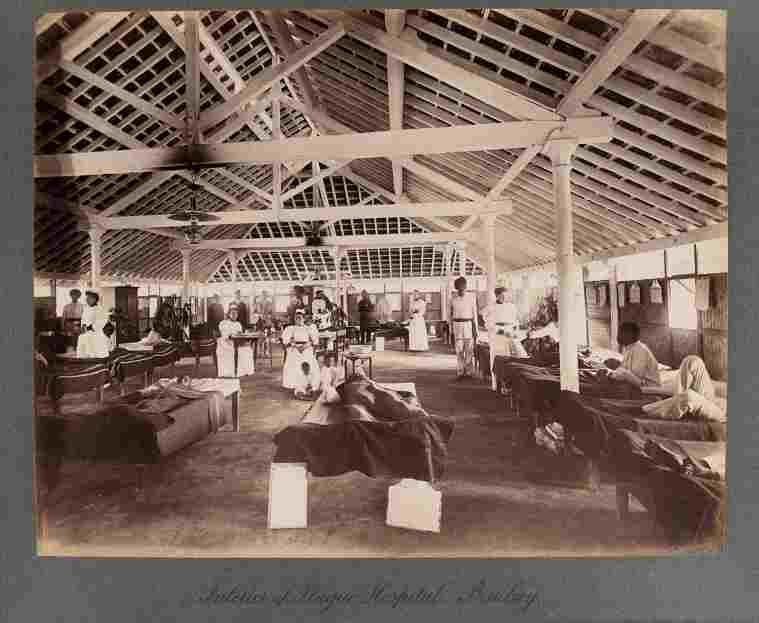 Interior of a temporary hospital for plague victims in Bombay. (Source: Wikimedia Commons)
Interior of a temporary hospital for plague victims in Bombay. (Source: Wikimedia Commons)
By the early 20th century, the plague had acquired the reputation of being India’s most feared and one of its deadliest ailments. Not only did it induce massive fatalities, but it also emerged as a huge social disrupter, as millions evacuated their homes in big cities, and several others were detained in observation camps by local governments to control the spread of the disease.
Also read: Black death: The great plague that killed millions, and feudalism
But perhaps the most far-reaching impact of the plague was upon the political atmosphere of the country. “The significance of plague for the political epidemiology of colonial India was far greater than that of the concurrent epidemics of malaria or influenza, even though in any given year the mortality they caused might have been considerably greater,” writes historian David Arnold in his book, ‘Colonising the body: State medicine and epidemic disease in nineteenth-century India.’ He explains that “because of the manner in which it was perceived by the colonial authorities and the nature of the sanitary and medical measures deployed against it, bubonic plague provoked an unparalleled crisis in the history of state medicine in India.”
The draconian measures employed by the British to control plague in India
The 20th century French philosopher Michel Foucalt had propounded the theory suggesting that under colonial rule medicine and health policies had also become tools for colonising society. At no other point in Indian history was this more evident as that during the Bombay plague.
At first, the administration in Bombay did not admit to the presence of the disease. But by October 1896, once they were forced to acknowledge the devastation the plague had brought about, they acted quickly and drastically. To begin with, an amendment to the Bombay Municipal Act of 1888 extended the powers entrusted to Bombay’s municipal commissioner. “The municipality simultaneously embarked on a massive, almost comically thorough, campaign of urban cleansing, flushing out drains and sewers with oceans of seawater and carbolic, scouring out scores of shops and grain warehouses, sprinkling disinfectant powder in alleyways and tenements, and, more tragically, destroying several hundred slum dwellings in the hope of extirpating the disease before it could fully establish itself,” writes Arnold.
But these measures were soon found to be ineffective and as the threat of the epidemic spreading outside Bombay and Pune became real, a new legal provision was brought into place. The Epidemic Diseases Act, 1897, passed by the then Viceroy, Lord Elgin, was rushed through his council with hardly any debate and consultation. It came into immediate effect and applied to all of British India. Arnold writes that the Act “gave the government powers to inspect any ship or intending passenger; to detain and segregate plague suspects, to destroy infected property; search, disinfect, evacuate, open up for ventilation, or simply demolish any dwelling thought to harbour plague.”
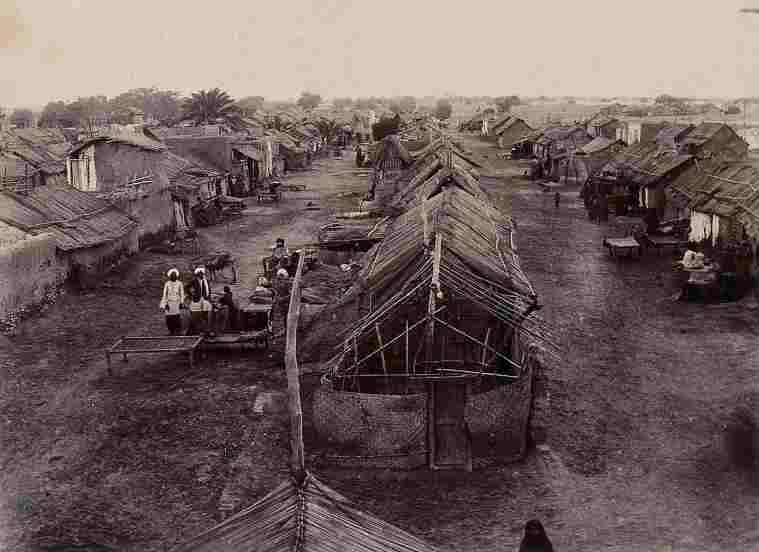 A segregation camp during bubonic plague outbreak in Karachi. (Source: Wikimedia Commons)
A segregation camp during bubonic plague outbreak in Karachi. (Source: Wikimedia Commons)
Further, in Bombay, Pune, Karachi, and Calcutta, responsibility for health and sanitation was taken away from municipal councils and handed over to small groups of European doctors and civil servants. Efforts were speeded up in Bombay and Pune as the army was appointed to bring military efficiency to the sanitary campaign.
“What was significant about this act is that it gave draconian powers to everyone in the colonial administration, including those in the lowest order, to check people at their will. Further, they could not be challenged in the court for the actions they took in the name of restricting the spread of the disease,” says historian Saurav Rai in a telephonic conversation with Indianexpress.com.
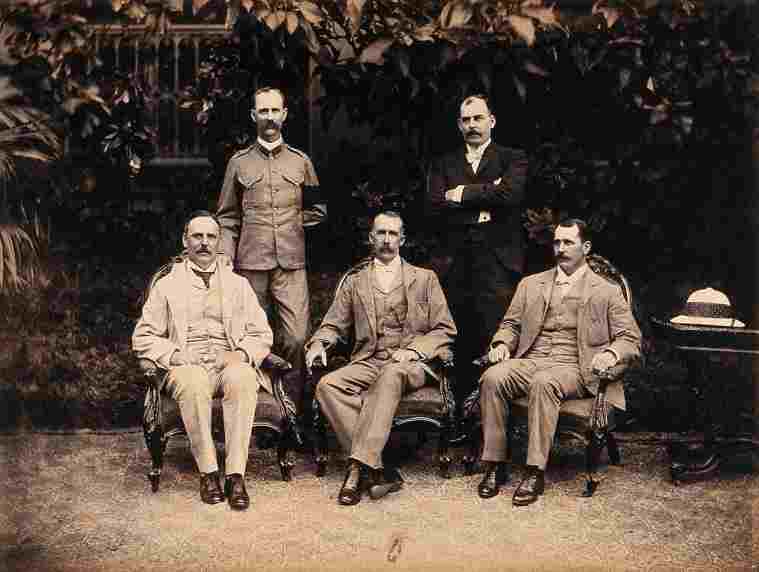 The plague committee in Bombay. (Source: Wikimedia Commons)
The plague committee in Bombay. (Source: Wikimedia Commons)
Interestingly, despite the high handedness of the colonial government, the European population living in India at that time was largely unaffected. Rai explains “colonial medical policies always tried to hide the instances of diseases among the European population in India since that could challenge the power hierarchy in India.” “Consequently, cases of plague among Europeans in India went unreported, and there were separate arrangements made for them,” he adds.
Arnold in his book writes that there were two main reasons for the relentless surveillance measures being taken by the British. “Fearing that this disease, like cholera before it, would spread from India to the rest of the world and invade Europe itself, other Western powers threatened and embargo on trade with India unless stringent measures were taken to suppress plague and prevent its transmission to Europe,” he writes.
A second factor though was that the epidemic represented a crisis in urban control. The cities in India through which the disease ravaged- Bombay, Karachi, Calcutta, were the central nodes of colonial power in India. “Indeed one impetus behind the Epidemic diseases Act was to protect Calcutta from infection by Bombay, given the close commercial and administrative ties between the two cities,” writes Arnold.
In his article, ‘Plague Panic and Epidemic Politics in India: 1896-1914’, historian Rajnarayan Chandavarkar writes that among the British there was the realisation that if the plague “spread through the subcontinent, it might devastate India’s social order and economic base, flatten the pivot of empire and undermine the foundation of Britain’s influence between the Yellow sea and the Red sea.”
Also read: How the 1896 plague epidemic shaped Mumbai
The plague also became a pretext for an assault on the rising political consciousness among Indians in the early 20th century. In Pune, for instance, the plague came at a time when a consolidated political movement against British policies, particularly those during the famine was taking shape. The Poona Sarvajanik Sabha, which constituted of several well-known names of the Indian national movement, including that of Bal Gangadhar Tilak was at the forefront of it.
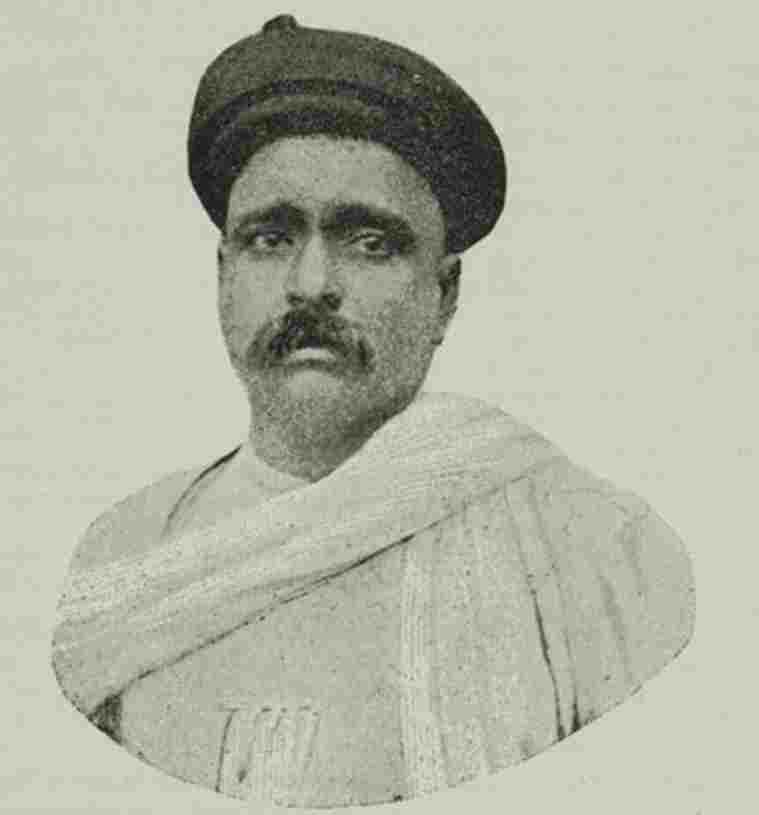 Tilak was imprisoned for a year for his alleged role in provoking the assassination of W C Rand, who was appointed as plague commissioner in the city. (Source: Wikimedia Commons)
Tilak was imprisoned for a year for his alleged role in provoking the assassination of W C Rand, who was appointed as plague commissioner in the city. (Source: Wikimedia Commons)
The plague provided a most fitting excuse to strike back at the movement. In 1897, the Shivaji and Ganapati festivals started by Tilak to promote Hindu nationalism were banned on grounds of plague restrictions. Further, Tilak was imprisoned for a year for his alleged role in provoking the assassination of W C Rand, who was appointed as plague commissioner in the city. “But the government’s counterthrust was not directed at Tilak alone. It was also aimed at the Pune municipal council, of which Tilak was also a member and which British officials saw as Brahmin dominated, politically suspect and, administratively inept,” writes Arnold.
A frenzied reaction from the Indian population
Unsurprisingly, the colonisers were soon met with drastic reactions from the Indian society. “The Epidemic Diseases Act was enforced without understanding the social structure in India at that time,” says Rai. “At that point in time, Indian society was strictly observing purdah or veil for women, and caste hierarchies. The rampant search operations, segrations and hospitalisations were often met with resistance since they were seen as an attack on social mores,” he adds.
Perhaps the most common form of response to the plague measures was flight, as from most large towns and cities a substantial population simply ran away. Moreover, Europeans were attacked on the streets and a few even lynched.
But as Chandravarkar writes, it was not just the plague measures, but also the way in which they were carried out that triggered the ire of the Indian populace. “Not surprisingly, there were complaints that all the females were compelled to come out of their homes and stand before the public gaze in the open street and be there subjected to inspection by soldiers. Soldiers were said to ‘behave disgracefully’ with native ladies,” he writes.
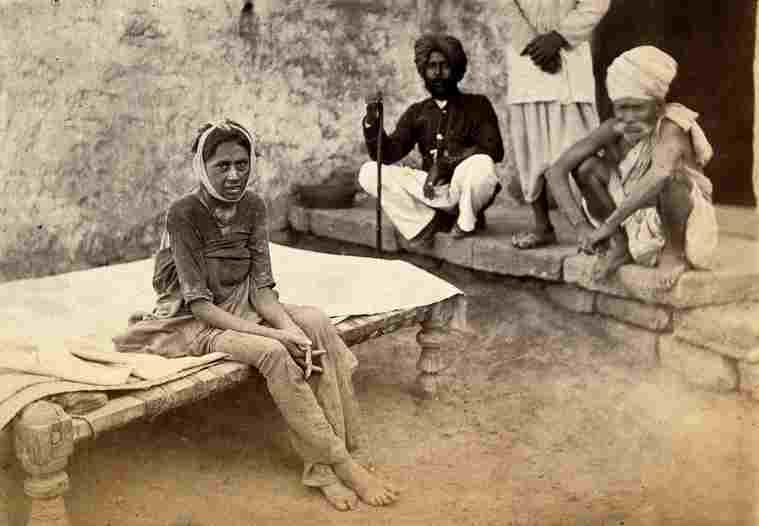 A female patient suffering from Bubonic plague in Karachi. (Source: Wikimedia Commons)
A female patient suffering from Bubonic plague in Karachi. (Source: Wikimedia Commons)
Further, there were also complaints suggesting that there were wanton and indiscriminate destruction of property during searches. “The most common complaint concerned false diagnosis which resulted in ‘perfectly healthy persons being seized and forcibly taken away by the search parties,” writes Chandrakarvar. The government vociferously denied these allegations and hardly ever could they be proven.
The most frenzied reaction to the plague measures were the protests and riots that followed. The most serious among these was the one that occurred on March 9, 1898 in Byculla, Bombay when a group of Julaha Muslim weavers fervently opposed the removal of a 12-year-old girl suspected of suffering from the plague. “A magistrate was wounded in the resulting fracas, and hospitals and other buildings were attacked and set on fire,” writes historian Natasha Sarkar in her article, ‘Plague in Bombay: Response of Britain’s Indian subjects to colonial intervention.”
The assassination of W C Rand by the Chapekar brothers in response to the search operations being carried out by the military was yet another instance of extreme public reaction to the plague measures.
Also read: How oppressive containment measures during Poona plague led to assassination of British officer
“Public opinion in India, on one hand, claimed that colonial rule was trying to move inside the private sphere of Indians, and on the other hand it also argued that that the plague measures were trying to restrict the upcoming nationalist movement,” says Rai.
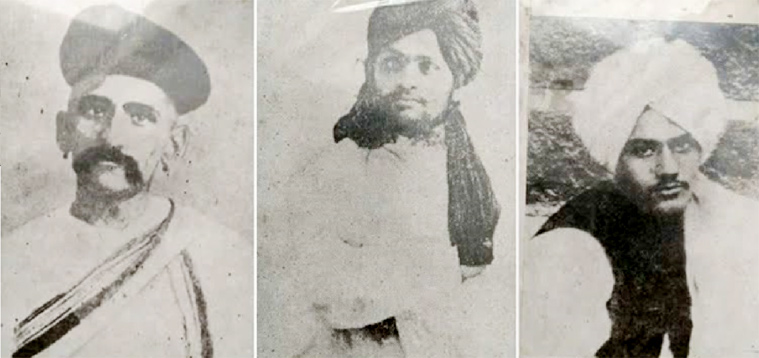 The assassination of W C Rand by the Chapekar brothers in response to the search operations being carried out by the military was yet another instance of extreme public reaction to the plague measures. (Source: Wikimedia Commons)
The assassination of W C Rand by the Chapekar brothers in response to the search operations being carried out by the military was yet another instance of extreme public reaction to the plague measures. (Source: Wikimedia Commons)
Rai goes on to explain that it would, however, be unfair to not keep in context the threat that plague posed to the Indian subcontinent at that point in time. “Maybe a number of these measures were genuinely required. But Indian society and politics were very volatile in the late 19th and early 20th century and things quickly went out of hand.”
Further reading:
Plague, Policy and Popular Unrest in British India by Ira Klein
Colonizing the Body: State Medicine and Epidemic Disease in Nineteenth-Century India by David Arnold
Plague Panic and Epidemic Politics in India, 1896–1914 by Rajnarayan Chandavarkar
Plague in Bombay: Response of Britain’s Indian Subjects to Colonial Intervention by Natasha Sarkar
📣 The Indian Express is now on Telegram. Click here to join our channel (@indianexpress) and stay updated with the latest headlines
For all the latest Research News, download Indian Express App.
Source: https://indianexpress.com/article/research/how-bombay-plague-resulted-in-the-epidemic-act-and-triggered-a-sense-of-nationalist-resistance-6481445/


